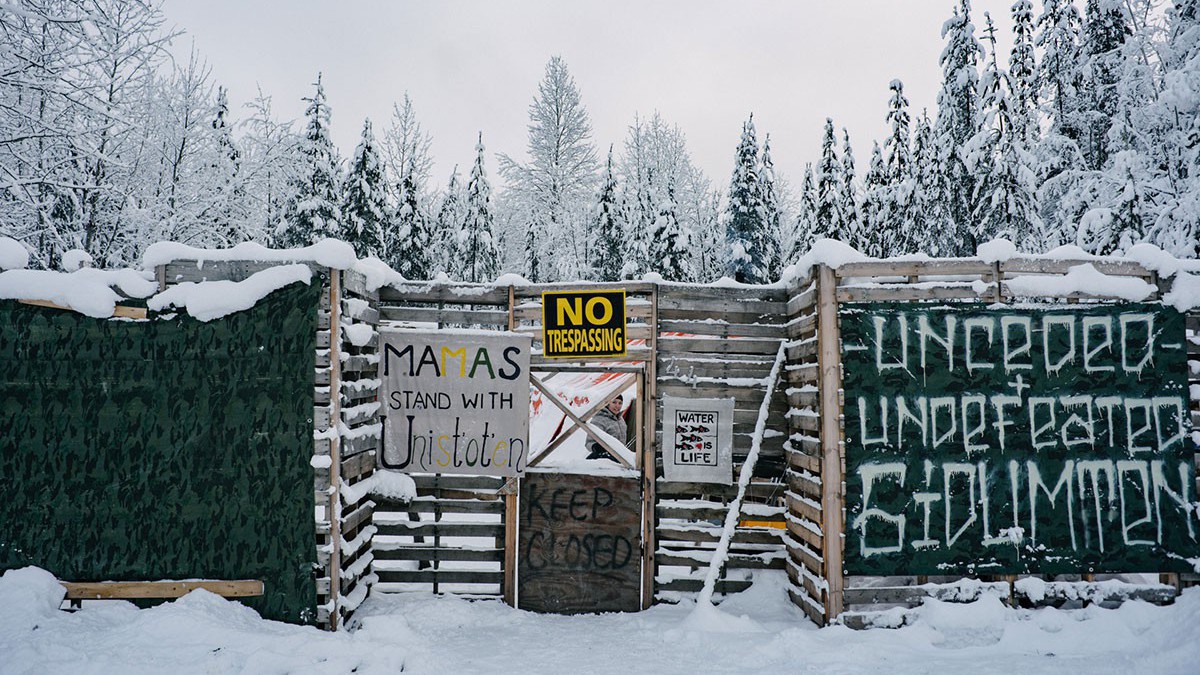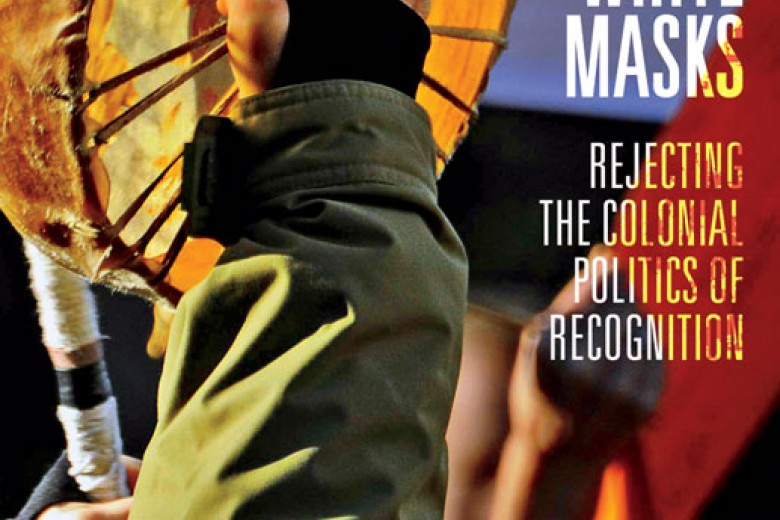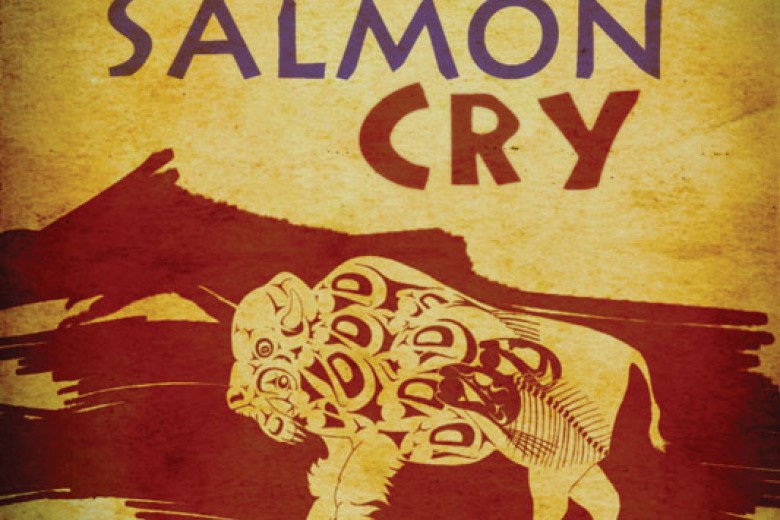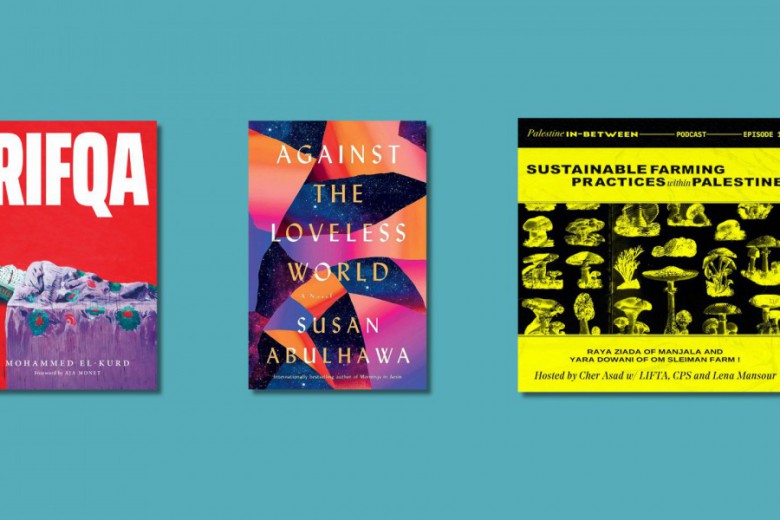The Canadian left is losing elections and party policies. We have enough people – the number of working-class Canadians who support and would benefit from socialist policies dwarfs the number of people benefiting from runaway capitalism. But we’re out-organized.
The far right has identified and exploited ideological pain points around gender, race, and class to win over swaths of settlers and grow their movements. They do not oppose Canada’s ongoing genocide against Indigenous people, and they proudly embrace the state’s white-supremacist, settler-colonial agenda of stealing land and exploiting resources.
Meanwhile, the Liberals and the New Democratic Party (NDP) have taken up a reconciliation narrative that positions Canada above its historical and ongoing genocide against Indigenous peoples, and the parties’ policies actively perpetuate Indigenous genocide. In doing so, these political parties legitimize the Canadian state and Canadian identity, maintaining the façade of Canada as a peaceful, democratic nation.
Both the far right and the Liberal and NDP’s positions perpetuate the same material violence. The difference is that one side pretends to be sorry while doing it.
If our movements stand a chance against the fascist far right, we need to reject the liberal reconciliation narrative and understand that Canada has been an invasive force since settlers representing the British Crown encountered Indigenous nations and began occupying their land. Canada’s Indigenous relations aren’t domestic – Canada is an imperialist settler colony. And the failure to treat Canada as the invasive state that it is will leave us to the mercy of the far right.
This, ironically, is something the far right understands very well. The Liberal and NDP’s reconciliation narrative keeps the material basis for Canada’s settler-colonial project intact, while repositioning ideological talking points to make settlers feel better about their role in ongoing colonialism. Both the far right and the Liberal and NDP’s positions perpetuate the same material violence. The difference is that one side pretends to be sorry while doing it.
To better understand Canada’s Indigenous relations, we can look to its foreign policy in former or currently colonized countries. Canada makes billions of dollars off of mining operations in Africa and Latin America, where it has historically backed colonizing forces. These mining operations collaborate with governments to exploit local workers, funnelling profits directly back to Canadian coffers. The Canadian government has assisted in the American invasions of Vietnam and Iraq, and today we sell weapons to and economically collaborate with genocidal regimes in Saudi Arabia and the Philippines. Canadians profit further by using immigrants as a growing supply of cheap domestic labour. Canada then uses this diversity to deliberately brand ourselves as Good Guys in contrast to the overtly brutal U.S.
To build left movements capable of winning in so-called Canada, we have to reject gains won by right-wing terror in the colonized world – including the territories of the First Nations, Inuit, and Metis.
Our movements should understand Canada’s Indigenous relations in the same way. Treating the Canadian state’s relationship with Indigenous nations as domestic policy implies that the Canadian state is dealing with its own subjects on its own land. But as the Yellowhead Institute notes in the Cash Back Red Paper: “Canada was capitalized by a land grab that transformed the economy. By capitalized, we mean that Canada did not own the lands and resources that it sold and continues to lease, license, and permit away. But it uses the claim to hold the underlying title to the land to fill its own coffers.”
If we recognize Canada as an invasive force, it becomes clear that Canada’s treatment of Indigenous peoples and communities inside its borders is consistent with how Canada operates outside of them. Canadian imperialism began in so-called Canada, and the state has expanded its occupation abroad.
If our movements stand a chance against the fascist far right, we need to reject the liberal reconciliation narrative and understand that Canada has been an invasive force since settlers representing the British Crown encountered Indigenous nations and began occupying their land.
True reconciliation means material accountability, as demanded by the movements for Land Back and Cash Back. These movements require the solidarity of settlers in the struggle for land and sovereignty, like the Wet’suwet’en struggle against the Coastal GasLink pipeline and the Fox Lake Cree Nation’s fight for their land. Solidarity for these struggles has to be in tandem with solidarity for struggles against Canada’s own imperialism and for Land Back in places like occupied Palestine.
Fascism cannot be effectively confronted without confronting its material and ideological base of settlerism. To build left movements capable of winning in so-called Canada, we have to reject gains won by right-wing terror in the colonized world – including the territories of the First Nations, Inuit, and Metis.
*Correction: A previous version of this article incorrectly stated that the Communist Party refuses to recognize Canada as a settler colony. A member of the party informed Briarpatch that the party does recognize Canada is a settler colony, citing the party's program: "Most immigration to Canada has been structured to support colonialist expansion and capitalist exploitation. In the colonial period, the English and French ruling classes not only directed white settlement that oppressed and displaced Indigenous peoples; they also exploited most immigrants as a source of cheap labour and primary production. Later patterns of immigration under the Canadian state continued racist, chauvinist, and anti-labour policies in expanding settlement and building capitalist industry."







